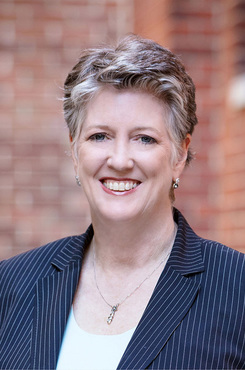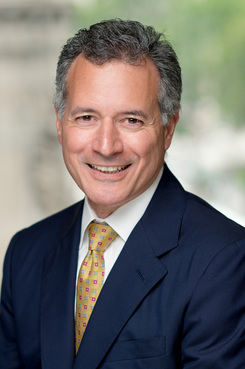Law Firm Recruiting Tries to Keep Up with Blockchain Boom
Don't be fooled by the cryptocurrency crash—legal recruiters say there's still huge demand for blockchain expertise, as well as lawyers who understand data privacy.
April 18, 2019 at 02:00 AM
5 minute read
The original version of this story was published on The American Lawyer
 Photo: Shutterstock
Photo: Shutterstock
It's no secret that blockchain and cryptocurrency are fast-growing specializations within the financial industry—JPMorgan Chase & Co. just tested its own digital currency—and law firms are busily snatching up lawyers with expertise in the emerging fields.
Major, Lindsey & Africa managing director Brian Burlant, who recruits for law firms and in-house legal departments, said it's been hard to keep up with demand for attorneys who understand the promise and risks associated with the technologies, as well as those with expertise in digital privacy.
Blockchain's applications extend far beyond heavily publicized cryptocurrencies such as Bitcoin and Ethereum, and include accounting, supply chain logistics, health care and advertising.
“What I am seeing in blockchain and in crypto is that firms are cautiously making forays into this space—feeling out for talent, trying to assess where are the trends from their clients coming; so it is very much a work in progress and everyone expects the weight of business to increase,” Burlant said. “We have also seen lawyers entering this space from regulatory practices or government, specifically securities regulation and white-collar/investigations practices, as regards to cryptocurrencies in particular,” he added.
Mary K. Young, a partner at Zeughauser Group, the law firm consultancy, said privacy law has also grown tremendously, “and my own experience backs that up, based on marketing research I did a year ago and also my experience with clients. Most global and national firms have added significant capabilities in privacy and data security in the last five years,” she said.
 Mary K. Young, partner at Zeughauser Group
Mary K. Young, partner at Zeughauser GroupExamples of recent lateral moves across these fields include Andrew “Drew” Hinkes, who joined Carlton Fields' chain and digital currency practice in Miami as of counsel earlier this year, while also serving as chief legal officer for investment tech firm Athena Blockchain Inc.; J.R.Lanis, who arrived at Polsinelli in Los Angeles as a shareholder and chair of the West Coast corporate and securities practice from Drinker Biddle; and David Katz, a partner in Adams and Reese's privacy, cybersecurity and data management practice who joined the firm in Atlanta in February from Nelson Mullins Riley & Scarborough.
“I think that the blockchain space was extremely popular for lawyers toward the end of 2017, and then the cryptocurrency crash happened, and a lot of lawyers who were working in crypto or blockchain went back quietly to whatever they were doing before, like Silicon Valley in the '90s” said Lanis. “Those who have stuck with it will continue to see a lot of activity in this area.”
Privacy law is heating up as more and more countries and states regulate enterprises that store and utilize vast amounts of personal data and transmit it via the internet, Burlant said. The European Union's General Data Protection Regulation, which took effect last May, and the similar California Consumer Privacy Act signed into law last year and effective January 2020, are examples of burgeoning data privacy regulation across the globe. A proposed amendment to California's law also would give a private right of action to consumers within the state whose rights are violated under the law, which potentially could expose companies to a flood of lawsuits.
Young said lateral hiring is increasing at both large and small firms as they try to build up their practices in data privacy and security. Firms are also promoting associates with relevant expertise from within both their corporate and litigation ranks. She said lawyers starting their careers can prepare by seeking out firms known for their privacy or blockchain/cryptocurrency practices.
 Brian Burlant, with Major, Lindsey & Africa.
Brian Burlant, with Major, Lindsey & Africa.“A person coming out of law school can look for a firm known for this, a marquee name. They do the work for people who can train them. It is very complex work because it involves technology and technical knowledge.”
A science and technology background, or at least familiarity, is a plus for anyone hoping to get a foothold in this growing specialty, but practitioners are not all science and tech majors, Burlant said. “For law students and those early in their legal careers, coupling a practical business approach with a working understanding of the technology is a good way to go,” he said. “Emerging and Fortune 500 companies are taking the lead in applying these technologies; there will be opportunities in representing clients in both sectors.”
He said demand is such that even lawyers from law schools outside the usual “Top 14” have been able to parlay specialized expertise into Big Law firms.
But he advises, “don't focus on the crypto, focus on the blockchain. It will be a game changer.”
This content has been archived. It is available through our partners, LexisNexis® and Bloomberg Law.
To view this content, please continue to their sites.
Not a Lexis Subscriber?
Subscribe Now
Not a Bloomberg Law Subscriber?
Subscribe Now
NOT FOR REPRINT
© 2025 ALM Global, LLC, All Rights Reserved. Request academic re-use from www.copyright.com. All other uses, submit a request to [email protected]. For more information visit Asset & Logo Licensing.
You Might Like
View AllTrending Stories
- 1Courts Grapple With The Corporate Transparency Act
- 2FTC Chair Lina Khan Sues John Deere Over 'Right to Repair,' Infuriates Successor
- 3‘Facebook’s Descent Into Toxic Masculinity’ Prompts Stanford Professor to Drop Meta as Client
- 4Pa. Superior Court: Sorority's Interview Notes Not Shielded From Discovery in Lawsuit Over Student's Death
- 5Kraken’s Chief Legal Officer Exits, Eyes Role in Trump Administration
Who Got The Work
J. Brugh Lower of Gibbons has entered an appearance for industrial equipment supplier Devco Corporation in a pending trademark infringement lawsuit. The suit, accusing the defendant of selling knock-off Graco products, was filed Dec. 18 in New Jersey District Court by Rivkin Radler on behalf of Graco Inc. and Graco Minnesota. The case, assigned to U.S. District Judge Zahid N. Quraishi, is 3:24-cv-11294, Graco Inc. et al v. Devco Corporation.
Who Got The Work
Rebecca Maller-Stein and Kent A. Yalowitz of Arnold & Porter Kaye Scholer have entered their appearances for Hanaco Venture Capital and its executives, Lior Prosor and David Frankel, in a pending securities lawsuit. The action, filed on Dec. 24 in New York Southern District Court by Zell, Aron & Co. on behalf of Goldeneye Advisors, accuses the defendants of negligently and fraudulently managing the plaintiff's $1 million investment. The case, assigned to U.S. District Judge Vernon S. Broderick, is 1:24-cv-09918, Goldeneye Advisors, LLC v. Hanaco Venture Capital, Ltd. et al.
Who Got The Work
Attorneys from A&O Shearman has stepped in as defense counsel for Toronto-Dominion Bank and other defendants in a pending securities class action. The suit, filed Dec. 11 in New York Southern District Court by Bleichmar Fonti & Auld, accuses the defendants of concealing the bank's 'pervasive' deficiencies in regards to its compliance with the Bank Secrecy Act and the quality of its anti-money laundering controls. The case, assigned to U.S. District Judge Arun Subramanian, is 1:24-cv-09445, Gonzalez v. The Toronto-Dominion Bank et al.
Who Got The Work
Crown Castle International, a Pennsylvania company providing shared communications infrastructure, has turned to Luke D. Wolf of Gordon Rees Scully Mansukhani to fend off a pending breach-of-contract lawsuit. The court action, filed Nov. 25 in Michigan Eastern District Court by Hooper Hathaway PC on behalf of The Town Residences LLC, accuses Crown Castle of failing to transfer approximately $30,000 in utility payments from T-Mobile in breach of a roof-top lease and assignment agreement. The case, assigned to U.S. District Judge Susan K. Declercq, is 2:24-cv-13131, The Town Residences LLC v. T-Mobile US, Inc. et al.
Who Got The Work
Wilfred P. Coronato and Daniel M. Schwartz of McCarter & English have stepped in as defense counsel to Electrolux Home Products Inc. in a pending product liability lawsuit. The court action, filed Nov. 26 in New York Eastern District Court by Poulos Lopiccolo PC and Nagel Rice LLP on behalf of David Stern, alleges that the defendant's refrigerators’ drawers and shelving repeatedly break and fall apart within months after purchase. The case, assigned to U.S. District Judge Joan M. Azrack, is 2:24-cv-08204, Stern v. Electrolux Home Products, Inc.
Featured Firms
Law Offices of Gary Martin Hays & Associates, P.C.
(470) 294-1674
Law Offices of Mark E. Salomone
(857) 444-6468
Smith & Hassler
(713) 739-1250






